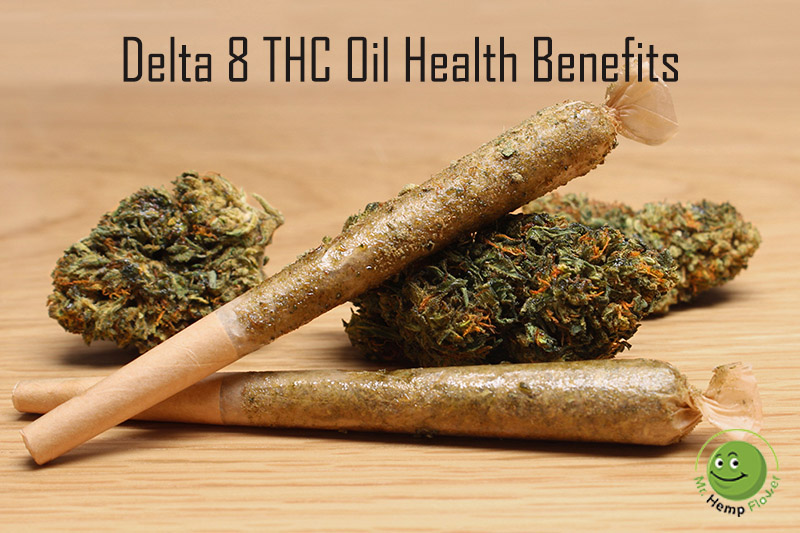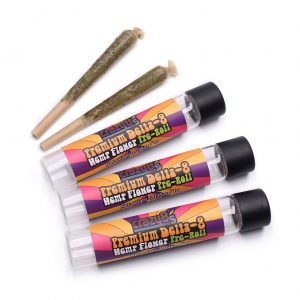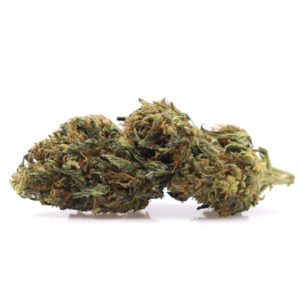Ever wished for a legal hemp cannabinoid that offers excellent therapeutic benefits and just enough psychotropic potency? Known as the most exciting hemp cannabinoid, delta 8 THC elevates the hemp experience to a whole different level.
In this article, we dive into the awesomeness of this unconventional cannabinoid. How does delta 8 benefit the body? What are some uses of delta 8 THC oil? Is it legal in your state? Let’s dive in.
Last Update: January 14, 2026
Article Summary
- Delta 8 THC is a minor cannabinoid naturally occurring in the hemp plant in tiny amounts. This cannabinoid is less potent than delta 9 THC and is converted from CBD in large amounts for commercial products.
- It binds with the CB1 receptor, causing a mellow psychoactive experience without overwhelming anxiety.
- Delta 8 THC has potential therapeutic benefits, although more research in humans is needed. It can be used to prevent nausea, stimulate appetite, reduce anxiety, boost memory, and relieve pain.
- Dosage recommendations vary based on experience and tolerance. Beginners should start with 5-15 mg, experienced users with 10-50 mg, and seasoned users can consider doses above 50 mg.
- Hemp-derived delta 8 THC is legal under the 2018 Farm Bill, but its legality varies among states.
What is Delta 8 THC?
Delta 8 tetrahydrocannabinol (delta 8 THC) is a phytocannabinoid naturally produced in the hemp plant. Delta 8 THC is a minor cannabinoid — it occurs in the hemp plant in trace amounts (about 0.01%). Processors convert hemp-derived cannabidiol (CBD) into delta 8 THC to obtain sufficient amounts of this cannabinoid and concentrate it into oils, tinctures, and distillates.
Delta 8 THC is an analogue of delta 9 THC. An analogue is a chemical with a similar structure to another “sister” molecule, with minor differences.
Similarly to delta 9 THC, delta 8 THC binds with the CB1 receptor in the central nervous system. These receptors cause the “intoxication” associated with cannabis. Unlike delta 9 THC, delta 8 is less potent and creates a clear-minded psychoactivity without the overwhelming anxious experience.

Where to Buy Products Infused with Delta 8 THC Oil?
Specialized online shops, like Mr. Hemp Flower, that offer premium and tested products, are the perfect place to purchase delta 8 THC-infused products.
You won’t find too many reliable suppliers that offer high-quality delta 8 THC products. Our delta 8 distillate is derived from USA-grown hemp and comes with a Certificate of Analysis. Mr. Hemp Flower brings you the best possible delta 8 THC items, including:
CBD Pre-Rolls Coated in Delta 8 THC Oil
Smokable D8 products are ideal for achieving fast delivery and excellent effectiveness. These characteristics make them especially suitable for pain, anxiety, and nausea.
Go all in with our 1 gram delta 8 pre-rolls sprayed with optimum amounts of delta 8 oil. You will get 48 and 49 mg/g of delta 8 with each hemp flower, respectively, on top of wonderful hemp components like cannabidiol (CBD) and terpenes.
For a heavenly experience, try our pre-rolled blend of CBD flower, delta 8 oil, and kief. A coat of genuine strain-specific terpenes gives each pre-roll an intense and tasty flavor. Available in several options, these terps make your pre-rolls taste like a dream.
Stormy Daniels Delta 8 Pre-Rolls
“I haven’t smoked anything in a long time. Although I use Delta 8 products, never tried a pre-roll. So, I smoked less than half. I had a nice, relaxing feeling about 30 minutes after.”
Delta 8 THC Oil Infused Gummies
Delta 8 gummies are sweet, chewy treats infused with delta 8 oil, available in flavors you crave. Our gummies come in different strengths, flavors, vegan and non-vegan options and allow you to enjoy the effects of full spectrum CBD and delta 8 distillate.
If you’re a beginner, start with our 10 mg delta 8 gummy before switching to the 20+ mg gummies. The 50 mg gummy is reserved only for seasoned users. You can enjoy our gummies for their calming effects, potential pain and anxiety relief or sleep improvement.
Delta 8 Peanut Brittle
“Great flower. Is everything the company describes. Nice, trimmed sticky buds, good tasting and great effects. Very pleased with order and shipping time. Will definitely be trying other products.”
Delta 8 THC Edibles
From chocolate bars to peanut brittle candy, our delta 8 edibles are highly delicious and highly effective treats. These tasty snacks are infused with premium delta 8 distillate and offered in hefty amounts per bag.
The peanut brittle treat contains a large cookie’s worth of peanut brittle, it’s quite tasty and has a nice bite to it. The D8 chocolate bar is just right for relaxing after a long day at work and comes in two different flavors, milk and dark chocolate.
CBD Flower Coated in Delta 8 THC Oil
We’re proud to bring premium, high-potency delta 8 flower into your hands. With us, you’ll enjoy the smooth flavor and relieving effects of some of the best CBD flower strains coated in premium delta 8 THC distillate.
Savor some of the strongest delta 8 strains available, made with integrity from seed to sale. Our team takes the best care in preserving the profile, potency and quality of these buds during the manufacturing process. We shield these buds from heat, light, and moisture in protective packaging to provide an experience you’ll love.
6 Uses And Benefits of Delta 8 THC Oil
Clinical studies on cannabis performed over the years focused primarily on delta 9 THC, and later, CBD. This resulted in little clinical studies on delta 8 THC. Even if research is scarce, this compound carries impressive benefits, including:
1.) Potential Antiemetic (Anti-Nausea)
Antiemetic is a term used to describe a chemical (usually a drug) that effectively helps ease nausea and vomiting. People use antiemetics to prevent nausea and vomiting caused by motion sickness, pregnancy, surgery, stomach flu, cancer and chemotherapy.
In the world of medical cannabis, tetrahydrocannabinol (THC) is a potent antiemetic commonly used as a substitute for antiemetic drugs. Delta 9 THC fulfills this role for patients who don’t react well to common antiemetic drugs.
Another reason THC substitutes antiemetics is to avoid side effects and complications caused by common antiemetic drugs. Compared to antiemetic drugs, THC only causes an altered state of perception and dizziness.
Regarding delta 8 THC as an antiemetic, there’s a study that showed beneficial effects for nausea and vomiting in children undergoing chemotherapy. The study was performed in 1995 by Dr. Raphael Mechoulam over a two-year period with eight patients ages three to thirteen. The study was successful because delta 8 THC prevented vomiting completely, which didn’t happen with the other treatments.
The authors of the study note that they haven’t observed delayed nausea or vomiting in any of the total 480 treatments. They praised delta 8 THC as an efficient new cannabinoid antiemetic for children. They also found that children can be administered higher doses of delta 8 THC than adults without experiencing psychotropic effects or other side-effects correlated with THC.
Although more research is needed in this area, delta 8 THC represents a viable option for nausea in the medical field due to less severe side effects. Also, delta 8 THC is 200% more effective an antiemetic than delta 9 THC.
Read more: Delta 8 THC for Nausea, Does It Really Work?
2.) May Stimulate Appetite
Tetrahydrocannabinol (THC) is used as a potent appetite stimulant for medical purposes. Researchers typically focus more on delta 9’s appetite-boosting properties, which have yielded promising results.
But, delta 8 THC is another viable option for boosting low appetite in people who want to avoid the heavy intoxication caused by delta 9. More studies are needed in this area, but delta 8 could be more efficient for low appetite than delta 9.
One 2004 animal study found better effectiveness of delta 8 THC for low appetite. The researchers gave mice very low doses of delta 8 THC and noticed increased food consumption and a tendency to improve cognitive function without the side effects.
3.) Potential Anxiolytic (Anti-Anxiety)
Anxiolytic (anti-anxiety, anti-panic), is a term used to describe drugs supposed to prevent or treat anxiety related to anxiety disorders. Anxiolytics are usually prescribed for short-term use because they can be habit-forming and lead to addiction.
Hemp has anti-anxiety effects coming from a wide array of terpenes and cannabinoids. Some people experience anxiety after consuming delta 9, which is typically correlated to taking a higher dose than what they can handle.
Because it’s milder, many people prefer using delta 8 THC for anxiety and enjoy a relaxing, uplifting, and calming intoxication. Most people continue their daily tasks (aside from driving or similar activities) after taking this cannabinoid.
Read more: Delta 8 THC for Anxiety
4.) May Boost Memory (Neuroprotective)
According to an animal study, delta 8 THC may have neuroprotective properties because it increases the brain’s levels of acetylcholine.
Acetylcholine is one of the most abundant neurotransmitters in the body, serving several critical functions. This neurotransmitter plays an important role in:
- Learning
- Memory
- Motivation
- Arousal
- Attention
- Promoting REM sleep
Acetylcholine is a critical chemical messenger found in many brain neurons, hence its role in memory and cognition. In fact, serious depletion of this neurotransmitter in the body can have negative effects and lead to diseases such as Alzheimer’s.
Studies show that delta 9 THC may play a role in acetylcholine levels in the brain, so many believe that delta 8 THC can prevent or treat conditions that cause memory loss.
5.) Analgesic (Pain Relieving) Properties
Phytocannabinoids display potent analgesic — or pain-relieving — properties.
A large group of main cannabinoids like delta-9-tetrahydrocannabinol, cannabidiol (CBD), cannabigerol (CBG), cannabichromene (CBC), tetrahydrocannabivarin (THCV), and others, contribute to the analgesic effects of cannabis. Now, we can add delta 8 THC to this extensive list.
One 2018 study explored the effects of delta 8 THC on mice with corneal pain and inflammation. The cornea is a thin, clear outer layer at the front of the eye that helps the eye focus light and see clearly. Damage to the cornea’s sensory nerve endings may cause corneal neuropathic pain.
Unfortunately, this condition lacks adequate treatment that alleviates pain without any side-effects. The animal study showed that topical delta 8 THC possesses antinociceptive (prevents the sensation of pain) and anti-inflammatory properties. The study also found that delta 8 THC mediates pain-relieving and anti-inflammatory effects primarily via the CB1 receptor.
Researchers studied most phytocannabinoids — separately or as a team — for their pain-relieving properties in humans. We need further research on delta 8 and pain in humans, but its influence on pain may be correlated to the CB1 receptor in the brain.
Both delta 8 THC and delta 9 THC (a known pain-reliever) bind to the CB1 receptor in the brain. The CB1 receptor mediates pain regulation, among psychoactivity, memory processing, and motor control.
This receptor is strategically located in the nervous system regions where pain signaling is intricately controlled. So by binding with this receptor, it’s likely that similarly to delta 9, delta 8 THC activates its analgesic properties in humans.
6.) May Help with Hangovers
Remember how delta 8 THC helps with nausea and vomiting? Whenever you have a nasty hangover, try delta 8 THC. Anecdotal evidence shows that this energizing compound leaves you relaxed and clear-headed with disappearing nausea.
Delta 8 THC doesn’t typically cause a euphoric high, so you can expect it to ease your hangover, without the anxiety you’ll get from delta 9 THC.
How Much Delta 8 THC Oil Should I Take?
There are no guidelines for dosing delta 8 products or a “precise” dose of delta 8 oil one should consider. Anecdotal evidence shows that this cannabinoid can be used in doses ranging from 10 to 100+ mg per day.
Because this cannabinoid is intoxicating, the dosing recommendations depend on the person’s tolerance. Here’s how to dose delta 8 oil and maximize benefits:
- Starting dose ranging from 5 to 15 mg (beginners) — a “microdose” or an extremely low dose of 5 mg (or less) is a great starting point for beginners. A low dose is perfect to test your tolerance and reaction to this compound and explore what works for you without the side effects.
- Standard dose ranging from 10 to 50 mg (experienced) — anything between 10 mg and 50 mg of delta 8 is considered an average dose. This dose is recommended for users who have experience with this cannabinoid but use it irregularly. If you’ve built a tolerance to this cannabinoid, you might want to try a slightly higher dose.
- Strong dose of 50 mg and over (regular, seasoned users) — advanced consumers typically know their tolerance levels and the way this cannabinoid affects them. Anything above 50 mg is considered quite potent and is only recommended for seasoned users.
Delta 8 THC oil is the staple of delta 8 products. It’s infused in your favorite gummies, edibles, and coated on the best flower strains. One of the most convenient ways to take delta 8 THC oil are soft gel capsules. They are easy to dose and, unlike oils and tinctures, leave no aftertaste.
The most important thing is to take it slow. This is an intoxicating cannabinoid, so you might need to test different strengths before building a routine.
How Will Delta 8 THC Make Me Feel?
Pure, hemp-derived delta 8 THC will make you feel mellow and relaxed. Its effects are typically described as calming and, in the right amount, clear-headed to the point where you can move on with your day after taking it.
This compound can also stimulate appetite and enhance your mood and creativity. You will likely feel an intoxication typically described as a weightless, floaty feeling.
While a delta 9 intoxication may make you anxious and paranoid, delta 8 stimulates relaxation without these two side effects. With that said, you may experience anxiety if you take extremely high doses of this cannabinoid.
What Happens If I Take Too Much Delta 8 THC?
Taking too much delta 8 THC will have adverse effects on your body and mind.
Depending on your tolerance levels and the potency of the dose, you will likely experience a non-lethal “overdose” on delta 8 THC.
Going slightly over the recommended dosage may cause undesirable side effects. These typically include nausea, dizziness, poor concentration, dry mouth and eyes. Luckily, they are temporary and because they wear off in a few hours.
Now, going way above the dose you can tolerate will cause similar but much more intense side effects. Your body and mind enter a high-intensity experience characterized by:
- Extreme anxiety
- Couchlock
- Heavy mind
- Nausea and vomiting
- Low blood pressure
- Difficulty breathing
- Tachycardia
- Coma (extremely rare)
If you ever go above your limit and experience less severe side effects, the best way to cope is to wait it out. These symptoms typically disappear within a few hours and don’t cause major inconveniences. You can consume CBD to reduce the unpleasant sensations, sleep it out, drink lots of fluids, take a cold shower or exercise.
In case any of these symptoms persist or worsen, seek medical attention ASAP.
Is Delta 8 THC Legal in Your State?
Hemp-derived delta 8 THC is legal under the 2018 Farm Bill.
Because it’s an intoxicating compound that’s also made through the isomerization of CBD, many states have decided to regulate the compound on their own. Some states allow the manufacture, sale and possession of products infused with this cannabinoid, while others have banned it altogether.
For more info on the legality of delta 8 in your state, check our comprehensive guide.
FAQs on Delta-8-THC Benefits
What are the benefits of Delta 8?
Delta-8-THC prevents nausea and vomiting, stimulates appetite, helps with anxiety and hangovers, and may improve memory and sleep.
Is Delta 8 legal?
Delta-8-THC derived from hemp is legal on a federal level. Friendly states are those that legalized all hemp tetrahydrocannabinols other than delta-9-THC.
How long does Delta 8 stay in your system?
From a few days to a few months depending on frequency of use, genetics, metabolism, etc.



